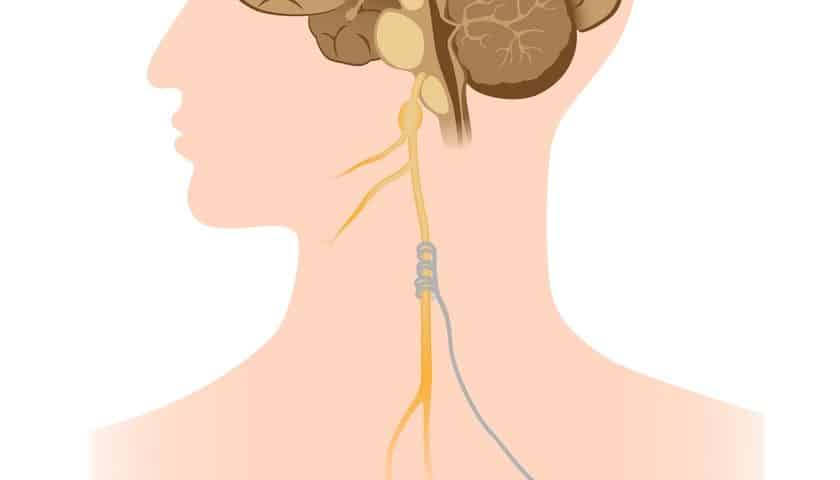Health
All you need to know about vagus nerve
The nervous system is the central portal to all body systems, including your bones. The process of bone remodeling cannot take place unless the appropriate signals are sent along the nerves to regulate the process.
As a part of the human body’s autonomic nervous system, the vagus nerve is the “head honcho” of involuntary biological processes. It stimulates and sends feedback reverse from the organs in the abdominal cavity, plus it regulates involuntary actions like mood, digestion, stress response, and so forth.
So let’s take a look at this amazing wandering nerve, how it affects your health and your bones, why the Valsalva maneuver works, and how to perform it.

Here are many ways this wandering nerve is involved in regulating your health
Regulates Heart Rate

The vagus nerve actually controls your heart rate by stimulating the sinoatrial node of the heart to release acetylcholine, a hormone that slows down the heart rate. The relationship between the body’s vagus nerve and the heart is so reliable, that the doctors can test the vitality of your vagus nerve (and the variability of your heart rate) by timing and charting the moments between heart beats.
It Can Cause Fainting When Over-Stimulated

If you feel light-headed (or actually pass out) when you see blood or observe medical procedures, it’s not a sign of weakness. Instead, it is a phenomenon which is known as “vagal syncope,” a response to stress that over-stimulates the vagus nerve. As noted in the first point, the vagus nerve is closely connected to your heart, so when it’s over-stimulated, it can cause your heart rate to drop and your blood pressure to drop. The blood flow to your brain is then restricted, causing you to faint.
Improves Memory

Animal studies show that vagus nerve stimulation improves memory. This is likely due to the fact that the vagus nerve releases norepinephrine into the amygdala, the area of the brain that organizes and consolidates memories and emotions.
Sends Messages To And From The Brain And The Gut

Phrases like “I have a gut feeling” have been in our language for many years, yet the knowledge that the vagus nerve connects the two is relatively new. Your gut feelings actually have basis in biology. The vagus nerve in the body acts as a sort of message translator between your gut and your brain, using electrical impulses to communicate between the two.
The vast majority of these messages go from the gut (via the ENS, or enteric nervous system in the digestive tract) to your brain; so in essence, your belly really does tell your brain how you’re feeling.
Prevents Inflammation
There is no other question that inflammation plays an essential role in bone health as well as many other health conditions, and in particular, heart disease. Inflammation literally ages your bones via oxidative damage, making them more vulnerable to fracture.
The vagus nerve will be always on a reconnaissance mission, gathering information from the organs as to the presence of inflammatory substances like cytokines. It then alerts the brain, which in turn responds by sending out anti-inflammatory neurotransmitters.
Keeps You Breathing
By causing the secretion of the neurotransmitter acetylcholine, the vagus nerve tells your lungs to breathe, over and over. Breathing is important for obvious reasons, but deep breathing is even more so. When you breathe air deeply, it not only alkalizes your body, but it also stimulates the vagus nerve itself, producing a sense of calm and reducing bone-damaging stress. So it helps your bones two ways, and also reduces depression and anxiety (more on this later).
Helps You To Relax
Did you know that your body has a mechanism in place for relaxation? It makes sense – something must kick in to cause you to calm down from an intense, stressful moment. Acetylcholine is involved once again, as well as the vagus nerve’s stimulation of this neurotransmitter. Acetylcholine signals the vagus nerve to release the relaxing and feel-good hormones to the organs where they are needed.
The many branches of your body’s vagus nerve distribute these relaxation chemicals directly to the organs that need them, causing you to feel calmer.Strengthening this vagus response helps you to recover more quickly from stress, which is where the Valsalva maneuver generally comes in.



Respected Muktaji
Very informative.Thanks
Will you please let us know how can we keep the vital nerve “VAGUS” healthy. I feel it is vital to maintain every type of human life.
Hi Mangal
Your most welcome and thank you for liking the article.
Below are the following ways which you can include in your daily routine to keep vagus nerve healthy:
Performing Yoga
Meditation
Breathe deeply and slowly
Sleep or lay at your right side